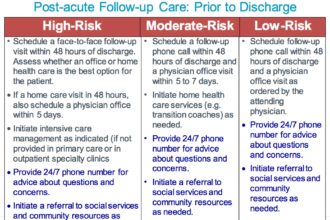The single most important feature of the Affordable Care Act (ObamaCare) is the establishment of a health insurance exchange where people will be required to buy health insurance if they are not insured by their employer or a government plan. As envisioned by Stanford professor Alain Enthoven, an early proponent of the idea, the exchange will be a model of competition… well…make that managed competition. (More on the “managed” part in a future Alert). But rather than move toward a competitive world, we seem to be moving toward the opposite extreme: monopoly. Major consolidation is underway both on the provider and insurer sides of the market. And while this trend was already underway before Barack Obama became president, without doubt it is accelerating because of ObamaCare. The graph below shows what things look like in the market for commercial insurance in major Texas cities:
- Blue Cross already has 70% of the market in three of the nine largest metropolitan areas.
- In all of them, and for the state as a whole, more than 60% of all customers buy from only two insurers.
Since the passage of the health reform bill, Harvard Pilgrim has announced its departure from the Medicare Advantage market (leaving 22,000 enrollees to search for coverage elsewhere) and the Principal Financial Group has left the health insurance market altogether (leaving 725,000 people behind). Many other small- and medium-sized insurers are struggling to hold on. What is causing the immediate problem? One big problem is a federally required medical loss ratio (MLR), a term of industry argot that means the percent of premium spent on health care, as opposed to administrative expenses. Before getting into the weeds on this let’s consider the same issue in two related fields: education and private charity. In almost every state, rarely does a session of the legislature adjourn before someone files a bill to require the public schools to spend a certain percent of their income “in the classroom.” How well does this work? Here is Michael Barba’s description in a forthcoming NCPA Brief Analysis:
Nationwide, schools spend an average of about $10,000 per student each year. On average, 60 percent of this is instructional, according to the National Center for Education Statistics (NCES). Instructional spending includes such things as teacher and staff salaries, extracurricular activities such as sports or academic clubs, and classroom supplies. However, each state can define instructional spending as it chooses, and expenses labeled as instructional are often not exclusively classroom expenses. In Texas, for example, the upkeep of vehicles, equipment and computers, as well as food service, travel, property insurance and refreshments for meetings are all considered instructional…
There is a…mandate in California that 85 percent of total school spending must be devoted to instruction, but the mandate is so riddled with exceptions that it allow funds to be diverted to nearly any program district officials see fit.
With respect to private charities, an often used rule-of-thumb is that 85% should be spent on programs and 15% on “fundraising” and “administration.” My advice: Forget the formal accounting and ask: Does the organization own its own airplane? Does the CEO have his own car and driver? Is there an executive dining room? Do they do a lot of direct mail? These questions are far more important than whether the organization is clever enough to classify the expenses as “program” or “marketing” or “human relations.” With respect to health care, the same problems arise. There is no hard and fast definition of what is “administration.” And in competitive markets, none of us have reason to care. Do you care how much McDonald’s spends on “administration”? I don’t. But when the federal government told McDonald’s it could spend no more than 15% of health insurance premiums on “administration,” the company threatened to cut its “mini-med” insurance for 30,000 workers. Overall:
- The administration has granted 2.7 million workers waivers, so they could avert the loss of their health insurance — in part because of the MLR regulation.
- Maine has received a waiver to allow a 65% MLR, rather than the 80% or 85% called for in the new law — to keep all its commercial insurers from leaving the state.
- Three other states (Kentucky, New Hampshire and Nevada) have filed similar waiver requests, and an additional 11 states are reportedly preparing to file them.
But waivers make the problem go away only temporarily. What’s really at issue is a difference of vision about how the health insurance market should be organized. As Scott Gottlieb has pointed out (in a study we covered here), MLR regulations stifle innovation and competition. They are part of a regulatory approach in which health insurance companies are turned into public utilities. On this view, it doesn’t matter that only one or two competitors are left standing. Regulation, not competition, is what ObamaCare officials are counting on to make health reform work.







